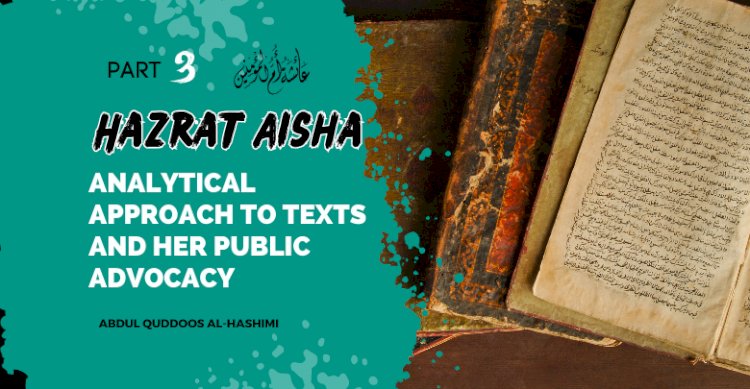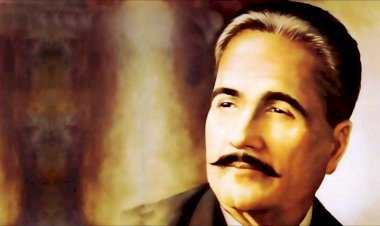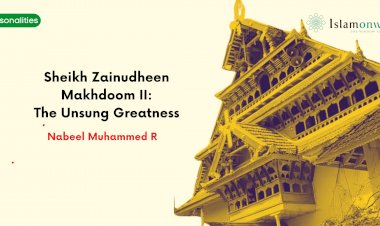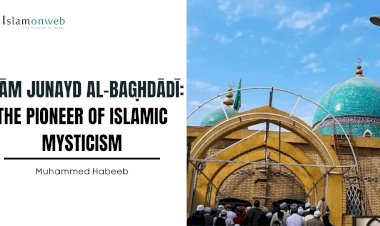Hazrat Aisha's Analytical Approach to Texts and Her Public Advocacy
Interpretation and Correction:
In her approach to issuing religious verdicts, Hazrat Aisha followed a method that aimed at understanding the rationale behind rulings and their intended purposes. Her jurisprudential approach was characterised by consideration for the circumstances of women, ensuring fairness in matters hidden from men due to their feminine privacy.
For instance, she critiqued Abdullah ibn Amr's fatwa regarding unravelling a woman's braids during ritual washing. She also issued her own fatwa, stating that it's not necessary for a woman to be accompanied by a male guardian when travelling. She understood that the hadith concerning the guardian is about ensuring the woman's safety and well-being, not restricting her movement during travel. Ibn Abi Shaybah (d. 849 CE) narrated in "Al-Musannaf" that Aisha said: "It was mentioned to Aisha that a woman should not travel except with a guardian, so Aisha said: 'Not all women find a guardian.'"
Aisha's stance on a widow's waiting period (iddah) is also noteworthy. While many companions believed a widow should stay in her deceased husband's house, Aisha issued a fatwa stating that "it is permissible for a woman whose husband has died to observe her waiting period wherever she wishes." She based this on the absence of a specific location in the Quran to observe the waiting period, despite specifying its duration.
Aisha disagreed with some of the companions regarding their literal interpretation of the hadith about cursing women who pluck their eyebrows and alter the creation of Allah, to the extent that they forbade women from removing any hair from their bodies and faces. Aisha, based on her feminine sensibility, believed that this wasn't altering one's creation or deceiving potential suitors, but rather a matter of personal hygiene and an aesthetic issue inherent to women. Therefore, when women sought her advice on this matter, she would say, "Remove what causes harm to you and beautify yourself for your husband" (reported by Abd al-Razzaq in "Al-Musannaf").
In Sahih al-Bukhari and Sahih Muslim, it's reported from Abu Huraira and Ibn Umar that the Prophet Muhammad ﷺ said, "It is better for one of you to fill his belly with pus and blood than to fill it with poetry!" Aisha commented, "Abu Huraira didn't preserve it correctly; he said, 'than to fill it with poetry used to blame me (means Prophet Muhammed ﷺ). (reported by al-Bukhari and Muslim).
Aisha had a deep understanding of the meanings and contexts of the hadiths. Hence, she indicated that migration (hijrah) had a temporal meaning linked to the persecution of Muslims. Abd al-Razzaq al-San'ani reported in "Al-Musannaf" that when asked about the timing of migration, she replied, "There is no migration after the conquest (of Mecca). Migration was only before the conquest when a person migrated with his religion to the Messenger of Allah. But after the conquest, a person could serve Allah wherever he wished, without wasting anything."
When people started discussing extensively the issue of performing a full-body bath before attending the Friday prayer, Aisha referred to the context of the hadith, saying, "The companions of the Messenger of Allah used to be workers, and they would have odours. So, it was said to them, 'If only you would perform bathing!'" (Sahih al-Bukhari). This indicates that it was guidance for the workers who came to the prayer from their workplaces and whose bodies and clothes had changed odours so they wouldn't inconvenience other worshippers.
Read: Part 1 - Aisha, Mother of the Faithful: The Scholarly Persona and Literary Critique
Methodological Principles:
Aisha was conscious of the hierarchy of evidence in its strength. The decisive (qat'iy) takes precedence over the speculative (zanni). Therefore, the Quran is presented, and nothing precedes it. When there was a contradiction between the hadith narration and the Quranic text, she deferred to the Quran due to the possibility of error in the narrator and the impossibility of such errors in the Quran.
Aisha once heard that Abu Huraira said: "The Messenger of Allah ﷺ said: 'The offspring of adultery is the worst of the three.''' Aisha remarked, "May Allah have mercy on Abu Huraira! He misheard and thus gave a wrong answer. The hadith wasn't like this. Rather, there was a hypocritical man who harmed the Messenger of Allah ﷺ. He asked, 'Who will excuse me from so-and-so?' It was said, 'O Messenger of Allah, despite his vices, he is the offspring of adultery.' The Messenger of Allah ﷺ then said, 'He is the worst of the three.' And Allah, the Exalted, says: 'And no bearer of burdens will bear the burden of another' (Quran, Surah Fatir, 35:18)." This narration is reported by Imam Abu Ja'far al-Tahawi in "Mushkil al-Athar" and al-Hakim al-Naysaburi in "Al-Mustadrak."
Aisha distinguished herself with a critical mindset and established a school of thought regarding the examination and criticism of hadith texts. However, this school declined after the death of Imam al-Daraqutni (d. 996 CE), as scholars began prioritising the authenticity of the chain of narrators over the content of the hadith. They would often accept and endorse a hadith solely based on the reliability of its chain. Nevertheless, Aisha adhered to a strict methodology when accepting the content of a hadith. One of the foundational principles was that the hadith should not contradict the Quran and should align with her memorised narrations. An example illustrates this:
Contradiction with the Quran: In his Sahih, al-Bukhari narrated from Ibn Umar that the Prophet Muhammad ﷺ said, "The deceased is punished in his grave because of the wailing done over him." Aisha rejected this hadith and denied its wording, saying, "Sufficient for you is the Quran: 'And no bearer of burdens will bear the burden of another' (Quran, Surah Fatir, 35:18)."
Another example is the hadith of the dead hearing, narrated by both al-Bukhari and Muslim from Anas ibn Malik. The essence of the hadith is that on the Day of Badr, the Prophet Muhammad ﷺ addressed twenty-four dead bodies of Quraishi warriors by their names and their fathers' names, asking if they found what Allah promised to be true. Umar ibn al-Khattab questioned, "O Messenger of Allah, are you speaking to bodies that have no souls?" The Prophet Muhammad ﷺ responded, "By Him in Whose hand is the soul of Muhammad, you do not hear what I say better than they do."
Qatada al-Sadusi (d. 737 CE) said, "Allah resurrected them until made them heard as a humiliation to them" regarding their situation. However, Aisha rejected this hadith because it contradicted, in her view, with the Quranic verses: "Indeed, you will not make the dead hear" (Quran, Surah An-Naml, 27:80) and "And you cannot make those in the graves hear" (Quran, Surah Fatir, 35:22).
B - Contradiction with her own narratives: An example is the hadith about pessimism concerning women, as narrated by Ibn Umar in Sahih al-Bukhari: "If there is evil omen in anything, it is in the house, the woman, and the horse." Aisha countered this with a narration reported by Abu Ja'far al-Tahawi in "Mushkil al-Athar" from Abu Hassan, saying: "Two men from Banu Amir came to Aisha and informed her that Abu Huraira was narrating from the Prophet ﷺ that he said: 'Omen is in women, houses, and horses.' She became angry, and a piece of her necklace broke (= an expression of extreme anger), and she said: 'By the One who revealed the Quran to Muhammad, the Messenger of Allah never said that. He only said: The people of Jahiliyyah used to believe in it.'" Aisha, relying on her knowledge from the Prophet ﷺ, clarified that such statements were merely narratives about the pre-Islamic era, not reflective of his beliefs.
She also heard the hadith of Abu Huraira, narrated by both al-Bukhari and Muslim in their Sahihs from multiple narrations, stating: "The prayer is cut off by a woman, a donkey, and a dog." Aisha rejected this narration, saying: "You are likening us to donkeys and dogs. By Allah, I saw the Prophet ﷺ praying while I was lying on the bed between him and the qibla." She rejected this narration due to its implication of negativity towards women and cited the Prophet's actions in her house, which contradicted the content of the hadith.
Read: Part 2 -Hazrat Aisha (RA) : A Beacon of Wisdom and Learning
Public Presence:
After the death of the Prophet Muhammad ﷺ(peace be upon him), Aisha, may Allah be pleased with her, served as a high-level advisor on legal matters in the Medina community, especially concerning marital issues. The companions often turned to her for guidance on these matters. For example, it's mentioned in the Sunan that during Umar ibn al-Khattab's time, there was a disagreement among the companions, even in Umar's presence, regarding what circumstances require couples to perform ritual washing. Ali ibn-Abi Talib suggested seeking advice from the Prophet's wives, and when they consulted Aisha, she replied, "If the circumcised parts touch each other, then ritual washing becomes obligatory."
During Uthman ibn Affan's reign, dissatisfaction grew among the people due to his administration policies. People from various regions sought Aisha's advice and intervention regarding their grievances. Aisha's stance during this period reflected her commitment to justice and accountability, even if it meant openly expressing dissatisfaction with the caliph's rule. However, historical narratives regarding this period remain contentious, with conflicting accounts and interpretations.
Aisha never condoned or advocated for the killing of Uthman; rather, her stance was that of a peaceful critic. However, following Uthman's unjust murder, she felt a sense of guilt, fearing that her criticism might have emboldened his assailants. Consequently, she demanded retribution for his killers. Her journey to Basra and subsequent involvement in the Battle of the Camel were driven by emotions and a sense of guilt rather than calculated planning. Despite receiving advice against her actions, she remained resolute, unable to find solace except in the overwhelming feeling of guilt.
Aisha later regretted her impulsive actions, realising that her emotional turmoil had clouded her judgment and led her into conflict. She wept upon reading the Quranic verses, recognising her error. Her life exemplified a dedication to knowledge, service, and jurisprudence, leaving behind a rich legacy of legal methodologies and scholarly contributions. She engaged in practices centuries ahead of her time, such as critical analysis of texts and prioritising the objectives of Islamic law in issuing legal rulings. However, contemporary proponents of reform often overlook their rich heritage in their pursuit of modernisation, missing out on the virtues it holds.
Ended
(Translation of Article published originally in Arabic in Al Jazeera Thurath. This series is published in 3 parts)
Disclaimer
The views expressed in this article are the author’s own and do not necessarily mirror Islamonweb’s editorial stance.
























Leave A Comment